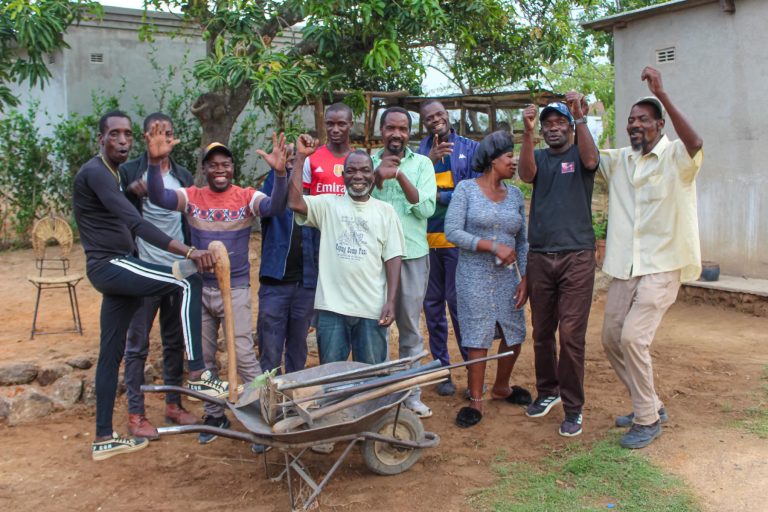Family is the nucleus of the African society. Most African communities are made up of strongly-knit family kinship. The African village is built on the back of the spirit of communalism and community sharing.
The African community is intertwined. It believes in the spirit of Ubuntu; that “a person is a person by other people”.
These communities understand that it takes a village to raise a child. Building strong African societies is not a one-man game but a communal effort of the village collective.
Such is the drive behind Another International Level (AIL)’s family-to-family concept.
Likeminded villagers, with the desire to better their selves and their communities come together in the family-to-family team to share knowledge, ideas as well as human and financial resources.
The success of individual members of this team becomes a model that motivates other villagers to emulate, and be inspired to join the network of families that work towards the development of their communities.
Over time, villages will become self-sufficient and have extra for sale, fighting hunger, malnutrition, and other vices that come from a lack of food, community awareness, knowledge and a lack of agency.
Sylvia Hove, a Zimbabwean philanthropist and women development practitioner based in the United States, is the brains behind the AIL family-family concept. A firm believer in the value of drawing from the rich cultural heritage, values and norms, to solve challenges bedevilling Africa.
Over the years, she has empowered women groups in Domboshava, Mberengwa, Zvishavane, Harare and Chikwaka with financial resources and capacity-building pieces of training.
‘There is no free lunch,’ is one of her favourite sayings, denoting her resolve to capacitate community initiatives, not with handouts, but with tools and knowledge that capacitate hardworking, resourceful and resilient villagers.
In 2022, she collaborated with Mambo Mukuvapasi, a diligent creative based in Chikwaka village to capacitate the Dzimwe Ragutu Eco-tourism centre. This partnership saw the birth of Another International Level (AIL), an initiative driven by the same family-to-family mantra.
The main goal was to capacitate rural folks with the necessary skills and resources to maximize the use of one of the free resources they have in abundance, Land.
AIL members are encouraged to be resourceful and make use of locally available resources and materials using available rudimentary technologies to improve the lives and livelihoods of rural communities.
For instance, AIL project officer Mambo Mukuvapasi collects seeds of various fruit trees, nurses them and has a thriving orchard of fruit trees using basic technologies without funding. Such success stories have inspired other villagers in Chikwaka, where Mambo Mukuvapsi is located.
AIL, is now a community group made up of farmers, creatives, skilled tradesmen, as well as community and spiritual leaders. The group meets regularly to update each other on projects at hand, share knowledge, unlock new ideas and pool resources and labour.
Following the age-old Shona practice, known as Humwe (coming together to cultivate, plant or harvest or do any work at hand collectively), AIL members collaborate on projects. They also do family visits to monitor growth, motivate each other and share ideas.
To date AIL has done some collaborative work at Mt Pleasant Harare, Domboshava and in Chikwaka.
Sylvia Hove does international research on seed varieties and current agro-trends and shares them with the members of the AIL family. She also shares opportunities for international exchange programs and networks AIL with the wider international community.
